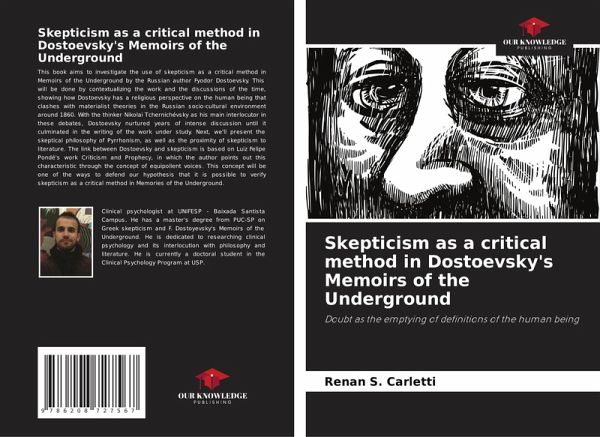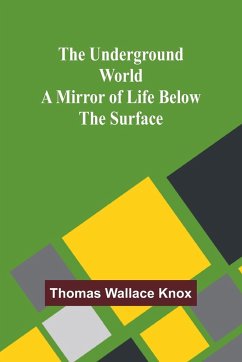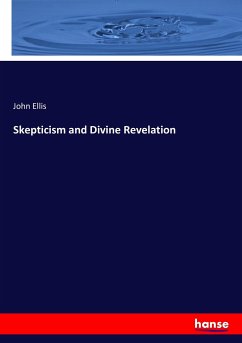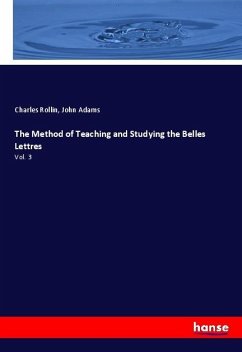
Skepticism as a critical method in Dostoevsky's Memoirs of the Underground
Doubt as the emptying of definitions of the human being
Versandkostenfrei!
Versandfertig in 6-10 Tagen
33,99 €
inkl. MwSt.

PAYBACK Punkte
17 °P sammeln!
This book aims to investigate the use of skepticism as a critical method in Memoirs of the Underground by the Russian author Fyodor Dostoevsky. This will be done by contextualizing the work and the discussions of the time, showing how Dostoevsky has a religious perspective on the human being that clashes with materialist theories in the Russian socio-cultural environment around 1860. With the thinker Nikolai Tchernichévsky as his main interlocutor in these debates, Dostoevsky nurtured years of intense discussion until it culminated in the writing of the work under study. Next, we'll present t...
This book aims to investigate the use of skepticism as a critical method in Memoirs of the Underground by the Russian author Fyodor Dostoevsky. This will be done by contextualizing the work and the discussions of the time, showing how Dostoevsky has a religious perspective on the human being that clashes with materialist theories in the Russian socio-cultural environment around 1860. With the thinker Nikolai Tchernichévsky as his main interlocutor in these debates, Dostoevsky nurtured years of intense discussion until it culminated in the writing of the work under study. Next, we'll present the skeptical philosophy of Pyrrhonism, as well as the proximity of skepticism to literature. The link between Dostoevsky and skepticism is based on Luiz Felipe Pondé's work Criticism and Prophecy, in which the author points out this characteristic through the concept of equipollent voices. This concept will be one of the ways to defend our hypothesis that it is possible to verify skepticism as a critical method in Memories of the Underground.












